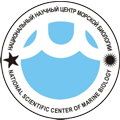Igor Yu. Dolmatov, the Director of the NSCMB FEB RAS and a Corresponding Member of RAS, approved the annual report of the International Cooperation Department (ICD), jointly prepared with the ICD of the Primorsky Aquarium scientific and educational center, a branch of the NSCMB FEB RAS.
According to the report, in 2024, the Center's international ties were maintained through 42 active agreements with 10 countries: the Republic of Korea, Taiwan, the People's Republic of China, the Socialist Republic of Vietnam, Japan, the United States of America, the Federal Republic of Germany, Belgium, the Republic of India, and the Republic of the Philippines. Additionally, work was also carried out under the Joint Russian-Vietnamese Tropical Research and Technological Center programme.
Five joint Laboratories and the Center were active:
- the International Vietnamese-Russian Research Laboratory of Marine Biology and Ecology;
- the Russian-Vietnamese Research Laboratory between the NSCMB FEB RAS, the Nha Trang Institute of Technology Research and Application (NITRA) VAST, and the Institute of Natural Products Chemistry (INPC) VAST;
- the Joint Marine Laboratory of biodiversity between the NSCMB FEB RAS and the National Marine Biodiversity Institute of Korea (MABIK);
- the Center for Excellence in Blue Economy (CoE-BE) between the Indian Institute of Science Education and Research, Kolkata, India (IISER Kolkata) and the NSCMB FEB RAS;
- the Joint Chinese-Russian Laboratory of Marine Biology and Ecology between the NSCMB FEB RAS and the Institute of Oceanology Chinese Academy of Sciences (IO CAS, Qingdao).
In late 2024, the IO CAS and the NSCMB FEB RAS launched a project to support the Laboratory's work funded by the Ministry of Science and Technology of the People's Republic of China. As a result of the activities of these Laboratories and the Center, joint scientific papers are published, and participation in scientific events, including conferences and webinars, is organized. Visits by foreign scientists to the NSCMB FEB RAS are also arranged, as well as visits of the Centre's staff to other countries.
Twenty-nine scientific trips to eight countries (Vietnam, Belgium, China, Taiwan, Japan, Turkey, Mexico, and South Korea) were carried out by staff members. Forty three foreign specialists from three countries (China, North Korea, and Vietnam) were hosted by the head organization and the Primorsky Aquarium. Seven employees participated in the work of international organizations (e.g., APN - Asia Pacific Network for Global Change Research, UNEPCOM, UNEP - United Nations Environment Programme, PICES, etc.). Forty-three press releases (in Russian and English) were published on the websites of the NSCMB FEB RAS and the Primorsky Aquarium in 2024.
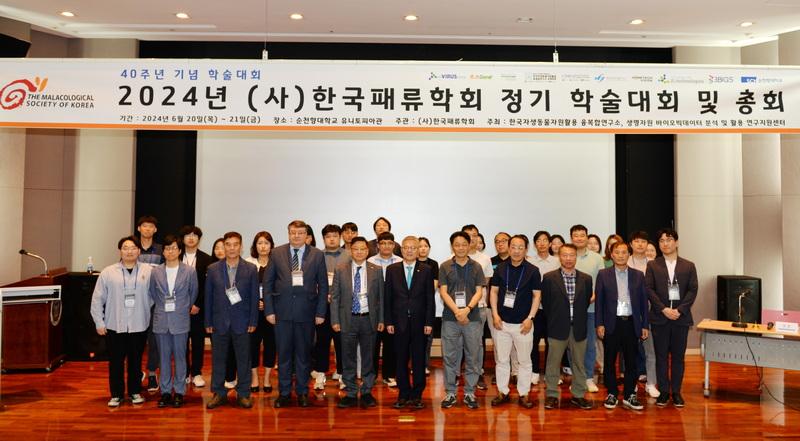
From July 7 to August 18, the NSCMB FEB RAS together with the Institute of Deep-Sea Science and Engineering of the Chinese Academy of Sciences (IDSSE CAS) conducted a scientific cruise aboard the Chinese R/V Tan Suo Yi Hao in the northern and central parts of the Kuril-Kamchatka Trench and in the western part of the Aleutian Trench. The investigations were conducted using the deep-submergence manned vehicle (DSV) Fendouzhe. The expedition included 10 Russian scientists from the NSCMB FEB RAS, POI FEB RAS, and IO RAS, 20 Chinese scientists, and nine Chinese pilots and engineers. During the cruise, 31 dives of the DSV were performed at depths ranging from 5,537 to 9,580 m. For the Russian scientists, it was their first experience of working in manned vehicles at such depths. Nine Russian specialists directly participated in the dives, including those to depths greater than 9,000 m. Russian scientists have been involved in integrated expeditionary studies of deep-sea ecosystems in the northwestern Pacific Ocean for many decades. The successfully completed Sino-Russian expedition provided unique data on the ecosystems of the two longest trenches of the ocean. The work resulted in more than 180 hours of video footage of deep-sea ecosystems, samples of bottom sediments, rocks, marine organisms, and a vast array of data on environmental parameters.
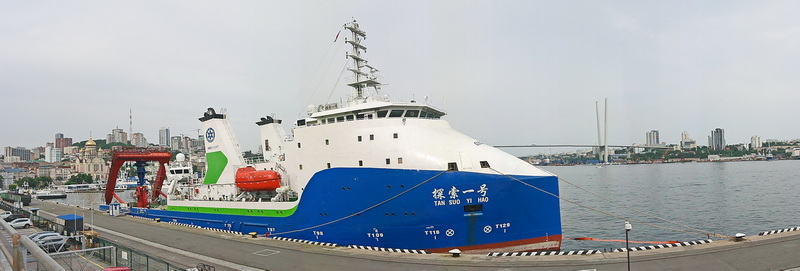
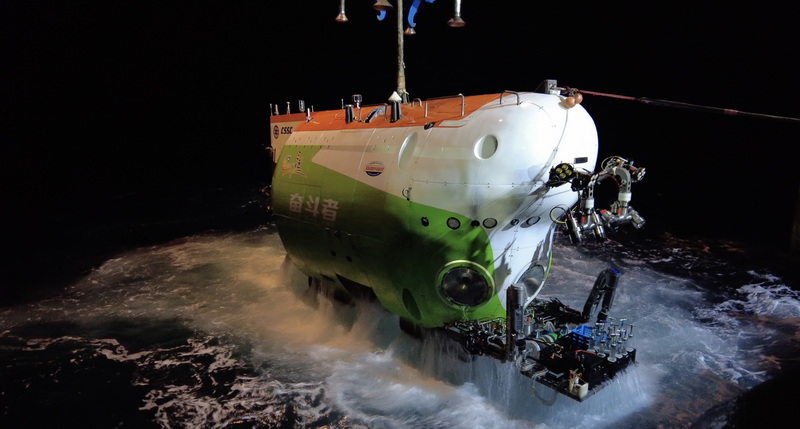

On November 13, a meeting of the IDSSE CAS and the NSCMB FEB RAS was held in Sanya. During the discussion, possible directions of further cooperation were negotiated: joint expeditions, processing of materials from the 2024 expedition, bilateral and international forums, availability of collection materials, creation of informational products (e.g., (methodologies, databases, etc.), and involving young staff, students, and postgraduates in joint projects. The participation of NSCMB FEB RAS staff members in a joint expedition with the IDSSE CAS using a DSV to the Arctic Ocean was discussed.
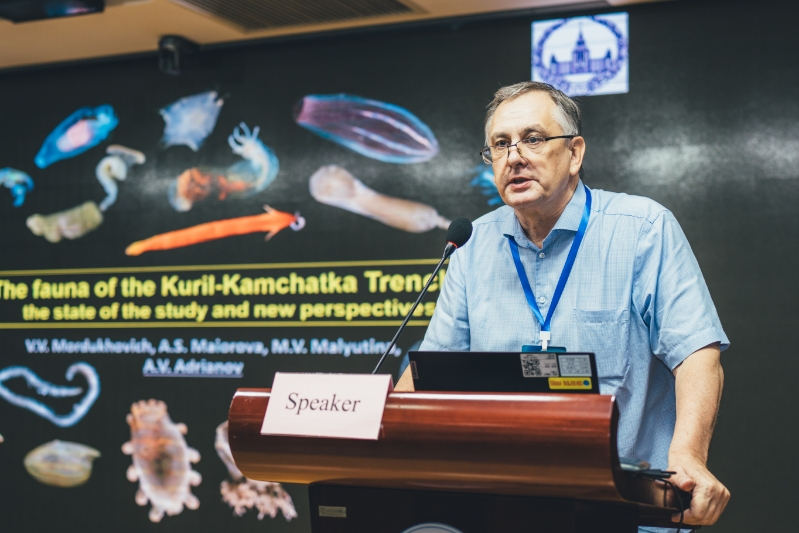
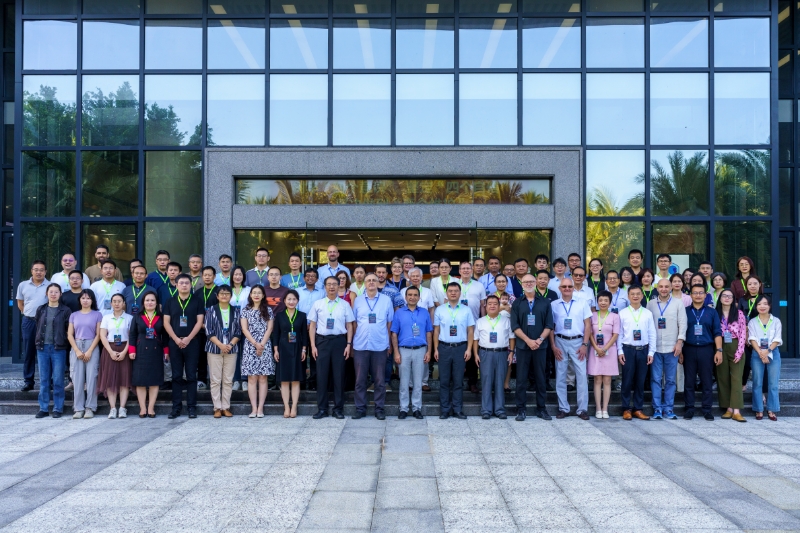
In 2024, researchers of the NSCMB FEB RAS published 13 scientific papers co-authored with foreign scientists and more than 110 papers in foreign journals. Additionally, 44 presentations (sectional, plenary and poster) were given at 19 international events in Russia; 25 presentations were given at 13 conferences abroad.

Eighteen years have passed since the establishment of the International Cooperation Department of the NSCMB FEB RAS. During this period, the ICD participated in or organized 28 international scientific conferences, workshops, and symposiums. In the last 11 years (since 2011), it has rendered assistance in organization of 653 trips abroad for the Center’s staff, covering 4 to 22 countries per year. Since 2011, 553 foreign specialists and researchers have visited the NSCMB FEB RAS, including members of official delegations, diplomats and representatives of international institutions (from 2 to 18 countries per year). Assistance was provided in organization and facilitating 38 expeditions and field work in 12 countries, including the visa support, the publication of joint scientific papers, and the operation of five joint laboratories and centers. For the first time in its history, the ICD also contributed to the preparation of a Sino-Russian research cruise in the waters of the Russian Federation.
